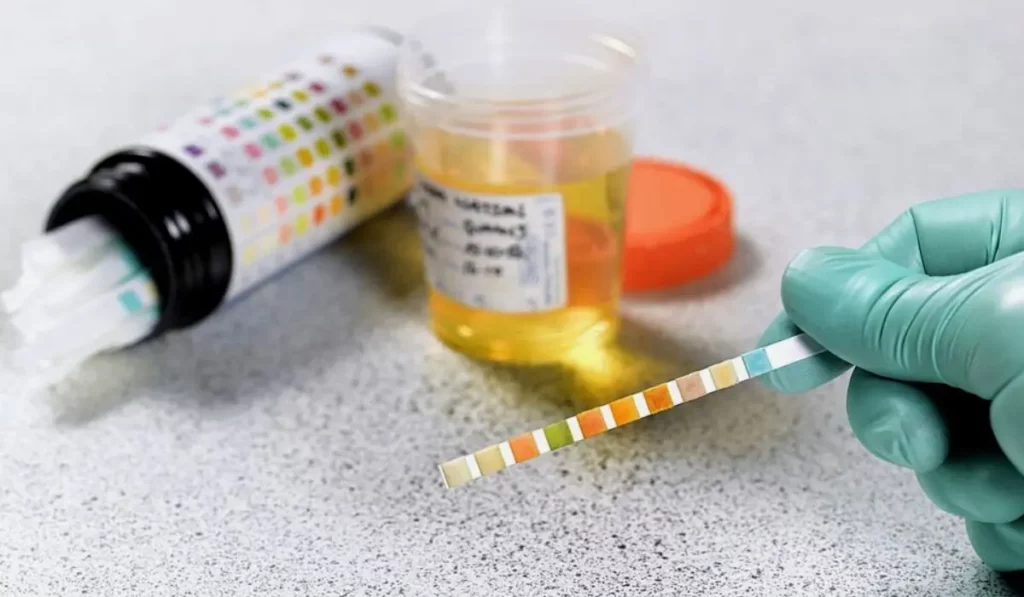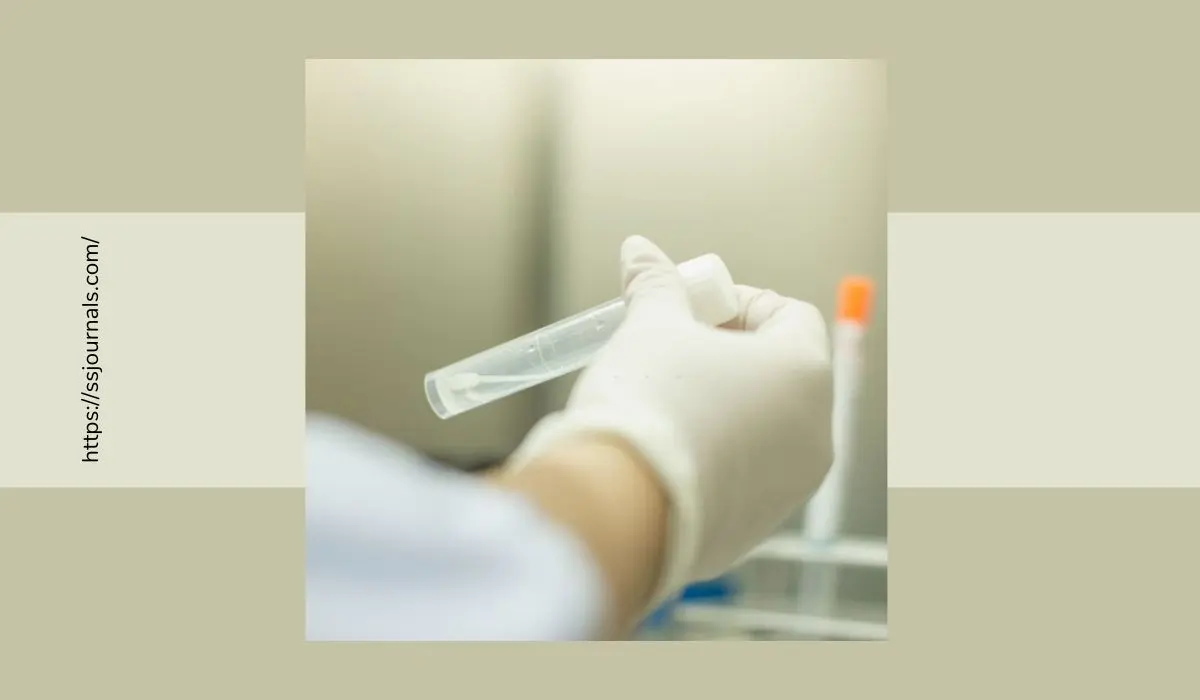You might have noticed a particular column in a urine test mentioning the amount of Urobilinogen in your urine.
Urobilinogen in urine tests quantifies the level of Urobilinogen in your urine. A specific and relatively small amount of Urobilinogen can be found in regular urine.
Excess Urobilinogen in your urine might indicate a severe liver condition, such as cirrhosis or hepatitis, or specific types of anemia.
On the other hand, low levels or absence of Urobilinogen could indicate issues with your liver or gallbladder or blockage of your bile ducts.
What Is Urobilinogen?
Bilirubin is the source of Urobilinogen. In the colon, helpful microorganisms convert bilirubin to Urobilinogen.
Urobilinogen is a substance that the body excretes in small amounts through feces.

Some of it travels through the blood, then reprocessed into liver bile. Urobilinogen is excreted in the urine in small amounts.
Urobilinogen concentrations in urine should not exceed 1.0 mg/dL.
A higher than this expected value could indicate hemolytic anemia, liver disease, or bile duct blockage.
Urobilinogen levels in urine that are low or absent could indicate that something is preventing bile from entering your intestines.
Your body rapidly breaks down red blood cells before producing new ones, which is likely to cause high Urobilinogen. Hemolytic anemia is the medical term for this illness.
This can also mean that your liver cannot recycle Urobilinogen into bile due to underlying liver disease.
What Are the Causes of Elevated Levels of Urobilinogen?
Urobilinogen levels in the urine are usually very scanty. Abnormally higher levels of Urobilinogen in your urine can indicate liver diseases.
🔶 Liver Problems
Bilirubin and urobilinogen levels in the urine might rise due to liver cirrhosis, hepatitis, or liver cancer.
Sometimes, liver disease symptoms won’t show up until urobilinogen levels do.
🔶 Severe Malaria
Increased levels of Urobilinogen in urine are a symptom of severe malaria, and the consequences include decreased platelet count (thrombocytopenia) and neural and liver malfunction.
🔶 Rapid Breakdown Of RBCs
Specific ailments or allergies trigger the body to create antibodies that kill red blood cells.
As a result, the blood will contain more bilirubin, which can be identified through a blood test or by having a lot of Urobilinogen in the urine.
Hemolytic anemia is another cause of the breakdown of red blood corpuscles.
The spleen creates and stores white blood cells, aiding blood filtering and removing old red blood cells.
Increased bilirubin might result from the improper functioning of inflamed spleens.
🔶 Blockage Of Bile Ducts
Cholestasis, the medical term for bile duct obstruction, or cholangitis, means the inflammation of bile ducts can also cause elevated urobilinogen levels.
Related:- What Are The Types Of Urinary Incontinence? Take Back Control
Three Ways To Lower Urobilinogen Levels In The Urine
Three primary steps you can take to help reduce your urobilinogen levels in the urine are:
🔶 Treating The Root Cause
Understanding and treating your underlying problems is the first step to lowering the urobilinogen levels in your urine.
Consult a medical professional to determine the potential reason for the elevated urobilinogen levels.
Discuss and find out what suitable remedies are available, and start with your treatment.
🔶 Maintenance Of A Healthy Lifestyle
A healthy lifestyle is a must-have. Maintenance of a proper diet filled with leafy green vegetables and all the proper nutrition is a must for your organs.
You must have a good eight hours of sleep and enough water intake. Furthermore, daily exercise also helps in keeping your liver healthy.
Finally, overindulging in alcohol can harm liver cells and worsen pre-existing liver disease. Alcohol might lower red blood cell counts and worsen anemia.
🔶 Reviewing Commonly Consumed Medications
Some commonly taken medications can harm the liver. Review the drugs that can cause harm rather than good.
Find out if your daily medicines are harmful to your liver from your physician.
Conclusion
Increased levels of Urobilinogen in urine could indicate liver issues. Hence, urobilinogen testing in the urine can provide significant insight into a person’s underlying health.
It’s crucial to follow up with your doctor to determine why your urobilinogen levels in the urine increase if they are above 1 mg/dL.
Medication that controls the immune system can be used to treat high urobilinogen levels that are brought on by hemolytic anemia.
Rest and dietary modifications are frequently effective treatments for liver-related issues.

